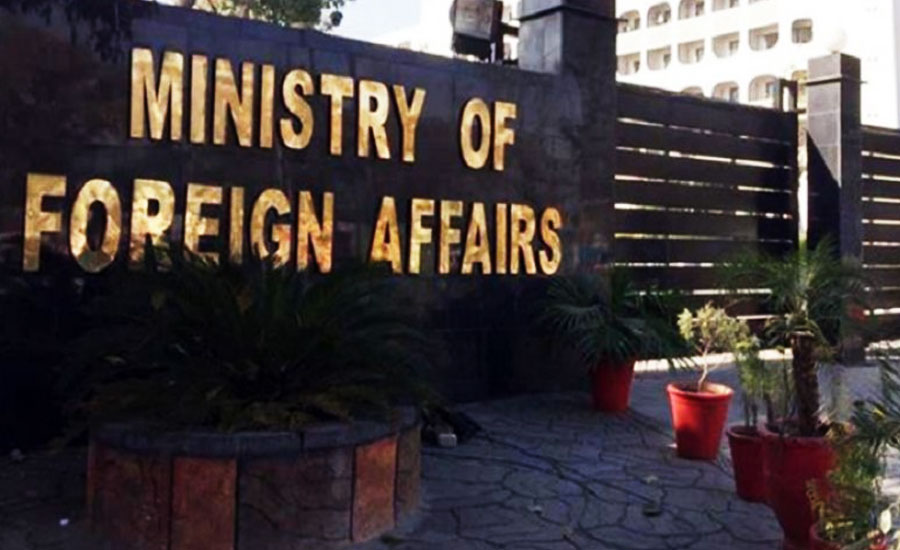Pakistan rejects baseless statement of Indian army chief

ISLAMABAD (Web Desk) – Pakistan has strongly rejected baseless statement of the Indian army chief alleging reactivation of terror camp in Balakot.
To a question about the statement of the Indian army chief, the Foreign Office (FO) spokesperson rebutted it as completely baseless.
The spokesperson emphasized that the Indian allegations of infiltration from Pakistan reflect a desperate attempt to divert international attention from the humanitarian nightmare in Indian Occupied Kashmir (IoK) being perpetrated by Indian occupation forces.
He said India would neither succeed in misleading the world community through these diversionary tactics nor will India be able to hide its unabated state-terrorism in Occupied Kashmir.
Earlier today, High-resolution satellite images reviewed by Reuters show that a religious school run by Jaish-e-Mohammad (JeM) in northeastern Pakistan appears to be still standing days after India claimed its warplanes had hit the Islamist group’s training camp on the site and killed a large number of militants.
At least 19 pine trees damaged in Balakot strike
On March 6, at least 19 pine trees were damaged due to the payload dropped by the Indian aircrafts in Balakot. The Forest Department had sent a final report in this regard to the federal government.
Observers of the United Nations, World Wide Fund (WWF) for Nature and other international environmental bodies will also visit Jaba village, area of Balakot on Thursday.
The international observers will prepare a comprehensive report on damage to environment due to the payload dropped by Indian fighter jets in haste, who had violated the Line of Control (LoC) on February 26.
The Indian aircrafts had violated the LoC, following which Pakistan Air Force immediately scrambled and Indian aircraft went back dripping payload near a village in Balakot.
Satellite images show buildings still standing at scene of Indian strike
The images produced by Planet Labs Inc, a San Francisco-based private satellite operator, show at least six buildings on the madrasa site on March 4, six days after the airstrike.
Until now, no high-resolution satellite images were publicly available. But the images from Planet Labs, which show details as small as 72 cm (28 inches), offer a clearer look at the structures the Indian government said it attacked.
The image is virtually unchanged from an April 2018 satellite photo of the facility. There are no discernible holes in the roofs of buildings, no signs of scorching, blown-out walls, displaced trees around the seminary or other signs of an aerial attack.







